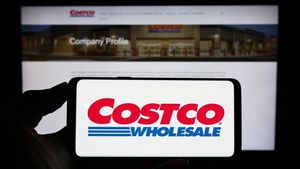6 Questions to Determine if Universal Life Insurance Is Right for You
By:
StatePoint Media
September 12, 2024 at 01:00 AM EDT
SPONSORED CONTENT -- (StatePoint) Life is full of changes, transitions, growth—and sometimes disruptions. September is Life Insurance Awareness Month, making it the perfect time to consider a universal life insurance policy that offers flexibility and options catered to your needs. According to Bankers Life, a national life and health insurance brand, there are six essential questions when considering if a universal life insurance policy is right for you. What is universal life insurance? Universal life insurance is a type of permanent life insurance that offers lifelong protection with the unique flexibility to adjust your coverage and premium amounts. Similar to other forms of permanent life insurance, universal life builds cash value that enables you to accumulate funds on a tax-deferred basis. How do universal life insurance premiums work? One of the major advantages of universal life insurance is the flexibility to adjust your premiums. During times when you have extra money available, you can contribute more than your minimum premium, and the surplus will be added to your cash value and accrue interest over time. On the other hand, if finances are tight and your policy has accumulated a high enough cash value, you can reduce or even skip premium payments without the threat of terminating your coverage. How does universal life cash value grow? Universal life insurance builds cash value over time through your deposits and the interest earned on your contributions. Some policies provide a guaranteed minimum interest rate, such as 3%, while others might offer a smaller minimum interest rate, such as 1%, but include the potential for higher growth linked to the S&P 500. Based on your specific policy, you can access your cash value through loans or withdrawals to help support your financial goals. It’s crucial to understand that with certain universal life insurance policies, the cash value isn’t passed along with your death benefit; you must withdraw the money while you’re alive. How does a universal life insurance death benefit work? Depending on insurer and product, universal life insurance can offer unique death benefit options. Some policies give you the option to decrease your death benefit if you require less coverage in the future. Other insurers offer the option to increase your death benefit as your needs evolve. In either case, death benefits are typically tax-free for named beneficiaries. What are some universal life insurance considerations? Of all the life insurance products available, universal life insurance offers you the most control. However, this flexibility requires some degree of policy management on your part. If you choose to skip or lower your premium payments, you must ensure that your policy has enough cash value. Otherwise, your coverage could lapse if it isn’t adequately funded. If you’re interested in permanent life insurance that features consistent premiums, a stable death benefit, and access to cash value, then a whole life insurance policy may be a better fit for you. Is universal life insurance right for you? If you’re unsure what type of life insurance policy is best for your needs and budget, an agent can walk you through your options and help you build a strategy that helps protect your financial security and peace of mind. For more information, reach out to a Bankers Life agent or visit bankerslife.com. Evaluating these six key questions is the first step in determining if a universal life insurance policy aligns with your financial goals and will ensure that you’re making an informed decision that protects your future. ***** Photo Credit: (c) PeopleImages / iStock via Getty Images Plus More NewsView More
These 3 Tech Companies Are Suddenly Paying Bigger Dividends ↗
Today 13:02 EST


BJ’s Wholesale Club and the Case for a Bullish Market Reversal ↗
Today 11:45 EST
Via MarketBeat
Tickers
BJ

Why Costco Stock May Struggle Even as Its Business Thrives ↗
Today 10:31 EST

Recent QuotesView More
Stock Quote API & Stock News API supplied by www.cloudquote.io
Quotes delayed at least 20 minutes. By accessing this page, you agree to the Privacy Policy and Terms Of Service.
© 2025 FinancialContent. All rights reserved.
|
